Serving 1,417 students in grades 9-12, Edgewood High School ranks in the top 50% of all schools in Maryland for overall test scores (math proficiency is bottom 50%, and reading proficiency is bottom 50%).
The percentage of students achieving proficiency in math is 15% (which is lower than the Maryland state average of 25%). The percentage of students achieving proficiency in reading/language arts is 61% (which is higher than the Maryland state average of 45%).
The student:teacher ratio of 15:1 is higher than the Maryland state level of 14:1.
Minority enrollment is 76% of the student body (majority Black), which is higher than the Maryland state average of 68% (majority Black).
Quick Stats (2025)
- School Type: Magnet School
- Grades: 9-12
- Enrollment: 1,417 students
- Student:Teacher Ratio: 15:1
- Minority Enrollment: 76%
- Graduation Rate: 80% (Btm 50% in MD)
- Overall Testing Rank: Top 50%
- Math Proficiency: 15% (Btm 50%)
- Reading Proficiency: 61% (Top 30%)
- Science Proficiency: ≤20% (Btm 50%)
- Source: National Center for Education Statistics (NCES), MD Dept. of Education
School Overview
Edgewood High School's student population of 1,417 students has stayed relatively flat over five school years.
The teacher population of 95 teachers has grown by 15% over five school years.
School Type
Grades Offered
Grades 9-12
(offers virtual instruction)
(offers virtual instruction)
Total Students
1,417 students
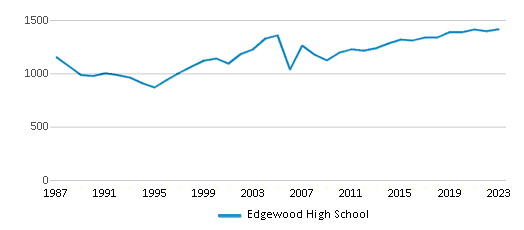
Gender %
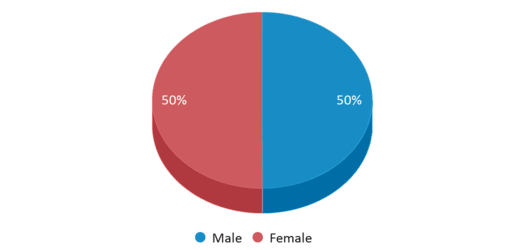
Total Classroom Teachers
95 teachers
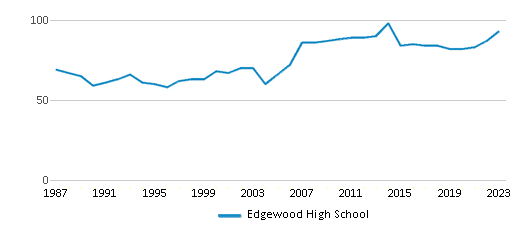
Students by Grade
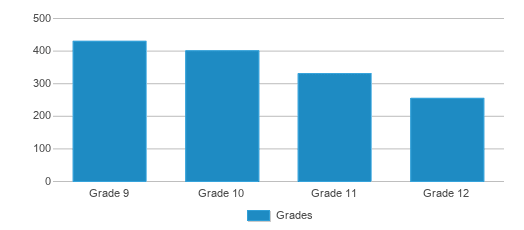
School Rankings
Edgewood High School ranks within the top 50% of all 1,347 schools in Maryland (based off of combined math and reading proficiency testing data).
The diversity score of Edgewood High School is 0.69, which is less than the diversity score at state average of 0.74. The school's diversity has stayed relatively flat over five school years.
Overall Testing Rank
#584 out of 1347 schools
(Top 50%)
(Top 50%)
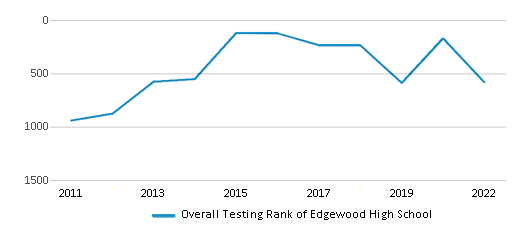
Math Test Scores (% Proficient)
15%
25%
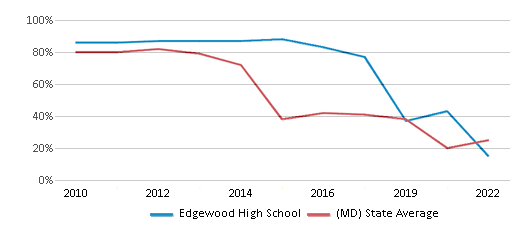
Reading/Language Arts Test Scores (% Proficient)
61%
45%
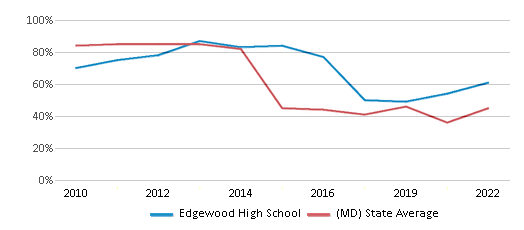
Science Test Scores (% Proficient)
≤20%
36%
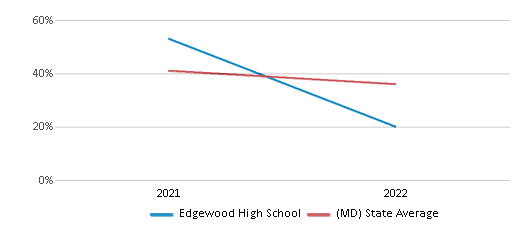
Student : Teacher Ratio
15:1
14:1
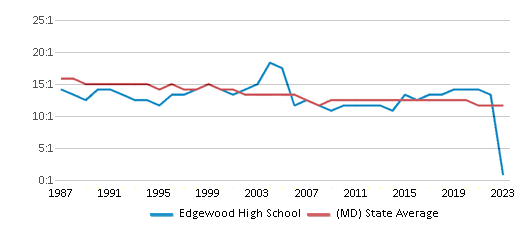
American Indian
1%
n/a
Asian
3%
7%
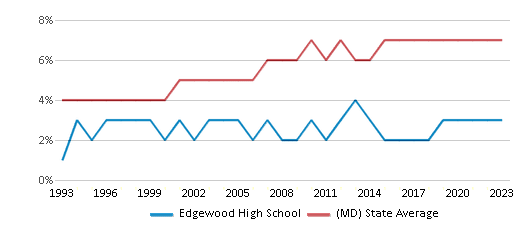
Hispanic
16%
23%
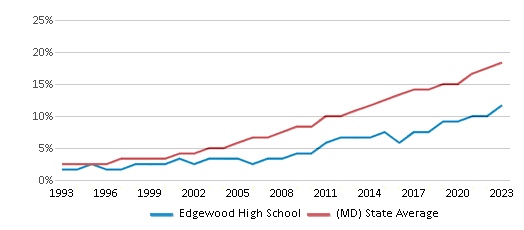
Black
47%
33%
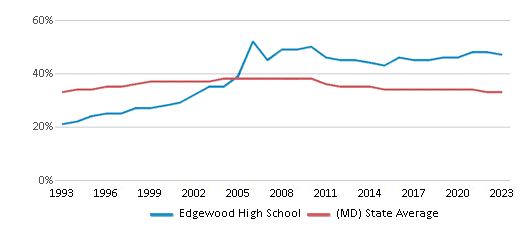
White
24%
32%
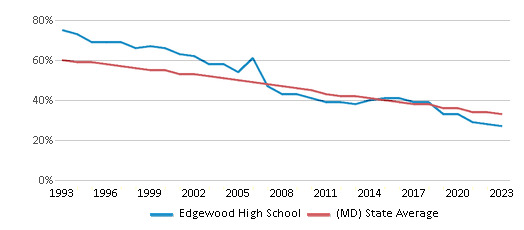
Hawaiian
n/a
n/a
Two or more races
9%
5%
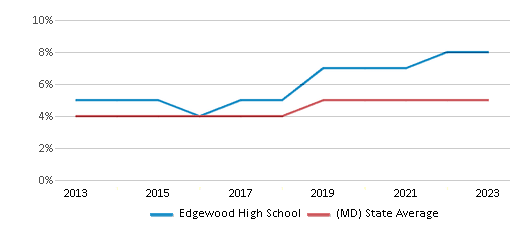
All Ethnic Groups
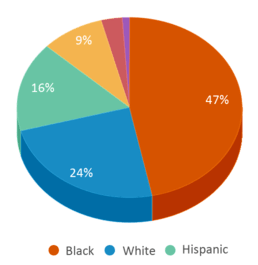
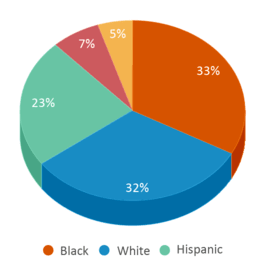
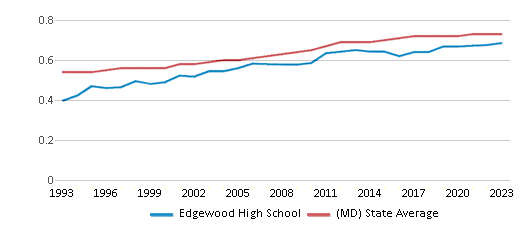
Graduation Rate
80%
86%
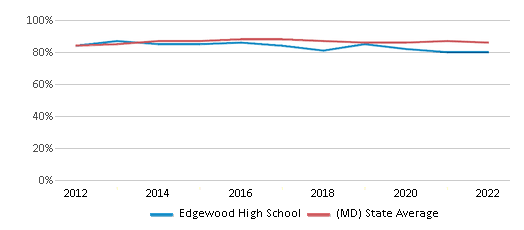
Participates in the National School Lunch Program (NSLP)
Yes
Eligible for Free Lunch
57%
44%
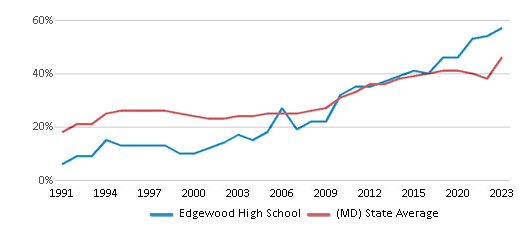
Eligible for Reduced Lunch
5%
5%
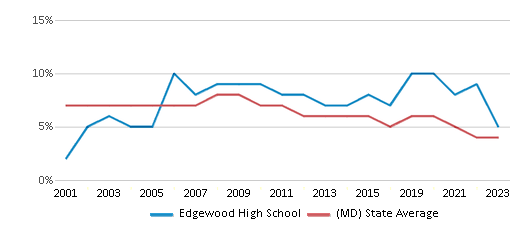
School Statewide Testing
School District Name
Source: National Center for Education Statistics (NCES), MD Dept. of Education
Profile last updated: 02/09/2025
Frequently Asked Questions
What is Edgewood High School's ranking?
Edgewood High School is ranked #584 out of 1,347 schools, which ranks it among the top 50% of public schools in Maryland.
What schools are Edgewood High School often compared to?
Edgewood High Schoolis often viewed alongside schools like Aberdeen High School, Bel Air High School, Harford Technical High School by visitors of our site.
What percent of students have achieved state testing proficiency in math and reading?
15% of students have achieved math proficiency (compared to the 25% MD state average), while 61% of students have achieved reading proficiency (compared to the 45% MD state average).
What is the graduation rate of Edgewood High School?
The graduation rate of Edgewood High School is 80%, which is lower than the Maryland state average of 86%.
How many students attend Edgewood High School?
1,417 students attend Edgewood High School.
What is the racial composition of the student body?
47% of Edgewood High School students are Black, 24% of students are White, 16% of students are Hispanic, 9% of students are Two or more races, 3% of students are Asian, and 1% of students are American Indian.
What is the student:teacher ratio of Edgewood High School?
Edgewood High School has a student ration of 15:1, which is higher than the Maryland state average of 14:1.
What grades does Edgewood High School offer ?
Edgewood High School offers enrollment in grades 9-12 (offers virtual instruction).
What school district is Edgewood High School part of?
Edgewood High School is part of Harford County School District.
School Reviews
5 3/21/2020
This school is absolutely perfect for those who want to suffer for their 4 years in high school.
2 6/30/2010
I hated everything about Edgewood. Glad I'm done with it.
5 6/14/2010
At first i heard all these rumors that Edgewood is such a bad school, now that i go to Edgewood (all three years in the middle school; and will be graduating from Edgewood High) I haven't been happier. I have many friends who go to Havre De Grace, Aberdeen, C Milton Wright, and Joppatowne. The stories that i hear about those schools from my friends makes me think And they call 'Edgewood', bad?. Anyways, I would be honored to say that Edgewood has an amazing record when it comes to the Arts. Edgewood's students are very talented when it comes to the Arts industry. Dancing, Singing, Acting, and Art in general is something that Edgewood takes pride in holding. Im a proud student of Edgewood High School.
Review Edgewood High School. Reviews should be a few sentences in length. Please include any comments on:
- Quality of academic programs, teachers, and facilities
- Availability of music, art, sports and other extracurricular activities
Recent Articles

What Is A Charter School?
Explore the world of charter schools in this comprehensive guide. Learn about their history, how they operate, and the pros and cons of this educational innovation. Discover key facts about charter schools, including admission policies, demographics, and funding, as well as what to look for when considering a charter school for your child.

10 Reasons Why High School Sports Benefit Students
Discover the 10 compelling reasons why high school sports are beneficial for students. This comprehensive article explores how athletics enhance academic performance, foster personal growth, and develop crucial life skills. From improved fitness and time management to leadership development and community representation, learn why participating in high school sports can be a game-changer for students' overall success and well-being.

February 05, 2025
Understanding the U.S. Department of Education: Structure, Impact, and EvolutionWe explore how the Department of Education shapes American education, from its cabinet-level leadership to its impact on millions of students, written for general audiences seeking clarity on this vital institution.





